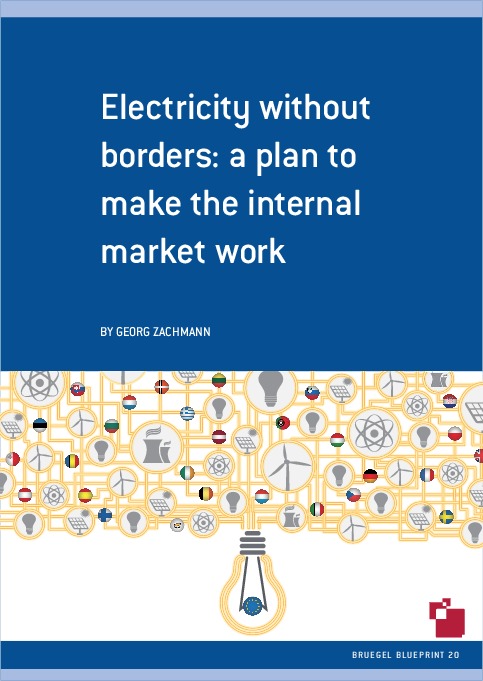Blueprint
Electricity without borders: a plan to make the internal market work
To reap the significant benefits from an integrated European electricity market, we propose the following blueprint: add a European system-management layer to complement national operation centres, upgrade the role of the European ten year network development plan, and share cost of network investments in Europe.
The most straightforward European single energy market design would entail a European system operator regulated by a single European regulator. This would ensure the predictable development of rules for the entire EU, significantly reducing regulatory uncertainty for electricity sector investments. But such a first-best market design is unlikely to be politically realistic in the European context for three reasons. First, the necessary changes compared to the current situation are substantial and would produce significant redistributive effects. Second, a European solution would deprive member states of the ability to manage their energy systems nationally. And third, a single European solution might fall short of being well-tailored to consumers’ preferences, which differ substantially across the EU.
To nevertheless reap significant benefits from an integrated European electricity market, we propose the following blueprint:
- First, we suggest adding a European system-management layer to complement national operation centres and help them to better exchange information about the status of the system, expected changes and planned modifications. The ultimate aim should be to transfer the day-to-day responsibility for the safe and economic operation of the system to the European control centre. To further increase efficiency, electricity prices should be allowed to differ between all network points between and within countries. This would enable throughput of electricity through national and international lines to be safely increased without any major investments in infrastructure.
- Second, to ensure the consistency of national network plans and to ensure that they contribute to providing the infrastructure for a functioning single market, the role of the European ten year network development plan (TYNDP) needs to be upgraded by obliging national regulators to only approve projects planned at European level unless they can prove that deviations are beneficial. This boosted role of the TYNDP would need to be underpinned by resolving the issues of conflicting interests and information asymmetry. Therefore, the network planning process should be opened to all affected stakeholders (generators, network owners and operators, consumers, residents and others) and enable the European Agency for the Cooperation of Energy Regulators (ACER) to act as a welfare-maximising referee. An ultimate political decision by the European Parliament on the entire plan will open a negotiation process around selecting alternatives and agreeing compensation. This ensures that all stakeholders have an interest in guaranteeing a certain degree of balance of interest in the earlier stages. In fact, transparent planning, early stakeholder involvement and democratic legitimisation are well suited for minimising as much as possible local opposition to new lines.
- Third, sharing the cost of network investments in Europe is a critical issue. One reason is that so far even the most sophisticated models have been unable to identify the individual long-term net benefit in an uncertain environment. A workable compromise to finance new network investments would consist of three components: (i) all easily attributable cost should be levied on the responsible party; (ii) all network users that sit at nodes that are expected to receive more imports through a line extension should be obliged to pay a share of the line extension cost through their network charges; (iii) the rest of the cost is socialised to all consumers. Such a cost-distribution scheme will involve some intra-European redistribution from the well-developed countries (infrastructure-wise) to those that are catching up. However, such a scheme would perform this redistribution in a much more efficient way than the Connecting Europe Facility’s ad-hoc disbursements to politically chosen projects, because it would provide the infrastructure that is really needed.









